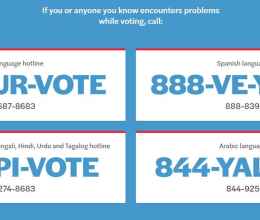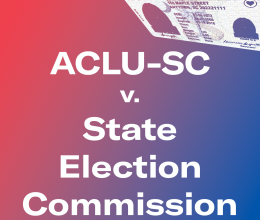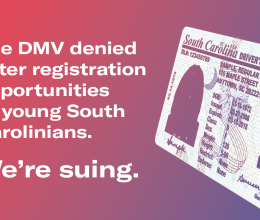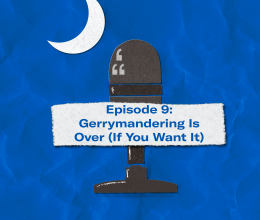
November 7, 2014. Columbia. Statehouse Report. By Victoria Middleton, Executive Director - ACLU of SC. Turnout for mid-term elections is traditionally light, but there are ways to encourage more people to exercise their fundamental right to vote. Regrettably since 2006, 34 state legislatures have worked diligently to chip away at voting rights.
In the past year alone, 14 states implemented legislation that would end same-day voter registration, limit early voting and require voters to present forms of ID that many voters lack and cannot easily obtain. What these measures have in common is that all would disproportionately impact African-American voters, making it more difficult for them to vote or have their vote count in a meaningful fashion. This, despite the fact that in Shelby v. Holder, Supreme Court Chief Justice John Roberts declared that "no one doubts" that race discrimination in voting still exists.
We need the new Congress to modernize the Voting Rights Act as the Supreme Court invited. We need to go beyond a static, geographically-based statute and instead get one that is flexible and forward-looking, capturing jurisdictions that have most recently engaged in acts of discrimination while also providing new nationwide tools to respond to race discrimination wherever it occurs in the country. In light of the new modest coverage formula, these other nationwide protections are critical in fulfilling the Voting Rights Act mandate of preventing race discrimination in voting for all citizens.
At the state level, we need to push back against legislation that would deny access to the ballot to eligible voters and urge measures that would make voting easier. State-level efforts to expand access to the polls include expanding early voting, online voter registration, and same-day voter registration.
This past election day, voters in three states overwhelmingly voted in favor of a system free from barriers, fairly administered and equally accessible to all. In Montana, voters have been able to register and vote on one day, election day, since 2005. Election Day registration, which is also available in 11 other states and D.C., is a proven method of increasing turnout. And it's popular with senior citizens, veterans, Native Americans, students and even many election officials. On Nov. 4, Montanans rejected a regressive ballot measure and affirmed their confidence in Montana's elections by a 14-point margin, with 57 percent in favor of keeping election day registration.
In Missouri, more than 70 percent of voters resoundingly rejected a constitutional amendment to allow for only six days (that didn't include weeknights or weekends) of early voting, a proposal that opponents decried as a "sham" and "bogus." In Illinois, nearly 73 percent of voters approved a constitutional amendment to prohibit discriminatory voting policies.
In South Carolina, we welcomed the passage of online voter registration in the last legislative session. Disappointingly, our legislature has balked at approving no-excuse early voting and has not considered same-day registration, despite the growing number of people moving into our state who might benefit from this measure.
Given modern technology which enables states to maintain accurate statewide voter registration lists and verify the eligibility of applicants instantaneously, there is no reason that qualified voters should be turned away from the polls because of the failure to comply with an arbitrary deadline weeks before an election. Moreover, the ten states that have implemented election day registration enjoy voter turnout rates 10 to 12 percentage points higher than states without same-day registration.
We should urge our newly elected officials in South Carolina to consider passing these and other measures that increase access, rather than make it harder for all their constituents to exercise the all-important right to vote.






